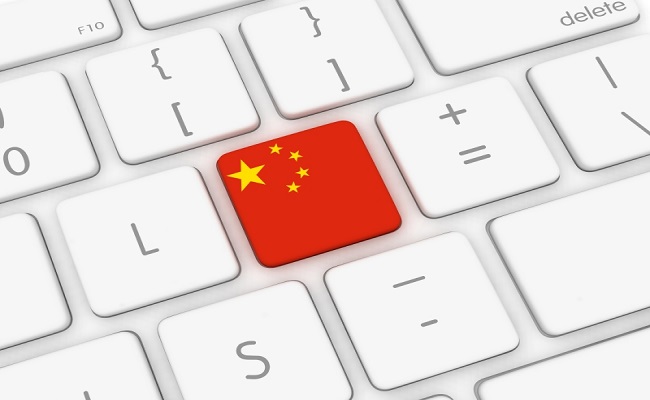The week that was: Qihoo 360 heads to Silicon Valley to fund start-ups; CCTV’s latest smear campaign targets Bank of China; China’s trade numbers look up; and electric cars may get cheaper.
Qihoo 360 launches its VC Fund in Silicon Valley
Qihoo 360, an internet security firm based in Beijing, has just set up a venture capital (VC) fund in Silicon Valley, according to The Wall Street Journal.
Following Tencent and Alibaba, who have already set up funds in the valley, Qihoo 360 plans to find start-ups that they can partner with, says the company’s Director of Strategic Initiative Mike Liao. “We are strategic investors. We are not in this for the financial returns,” he told the Journal.
Since setting up its US office nine months ago, the NASDAQ-listed firm has already picked up stakes in at least five companies in the Valley, including EyeVerify, which develops technology to scan people’s eyeballs to replace the use of passwords and fingerprints. Liao said that Qihoo 360 can easily use the technology in their products, including mobile security and gaming apps.
Qihoo 360 is the latest Chinese companies to tap into the VC market in Silicon Valley. Earlier this year, conglomerate Fosun International and automaker SAIC Motor had both launched investment funds in the world’s tech center.
China’s trade data improves while GDP stabilizes
Imports and exports data released on Thursday shows that China’s trade picture is improving slightly, but domestic and external demand remains weak.
The country’s exports grew 7.2% year-on-year in June, higher than the 7% growth logged in May; imports rose 5.5% from last year, contrasted by a 1.6% fall one month earlier. Trade balance stood at a surplus of $31.6 billion, compared with $35.92 billion recorded in May.
But the numbers failed to beat economists’ expectations (10.6% exports growth and 5.8% imports growth), CNBC reported, as they are compared with a weak base from a year ago. Barclays’ analyst Jian Chang told CNBC that the data is an important indication implying that Beijing may be more willing to come up with easing measures in the third quarter to boost the economy.
According to a poll of 21 analysts done by Reuters, China’s GDP grew 7.4% the second quarter from last year—the same rate as the one logged in the first three months. UBS analysts said in a note that growth momentum should “warm up further” in the third quarter, as the government will release more stimulus packages. Chinese Premier Li Keqiang said earlier this week that the growth of the world’s second-largest economy quickened in the second quarter, without giving a specific GDP number.
China to reduce intervention on RMB exchange rate?
The value of the RMB has slipped about 2.4% against the US dollar so far in 2014, and many analysts attribute the fall to Beijing’s invisible hand. But the central government will try to intervene less and less in the exchange rate, according to a joint statement made after the latest round of talks between senior officials of China and the US.
US Secretary of State John Kerry and Treasury Secretary Jacob Lew visited Beijing this week to participate in the two-day Strategic and Economic Dialogue, Bloomberg reported. While the two countries have been at odds on a series of issues such as cyber security, maritime disputes and human rights, they managed to agree on some things such as pushing forward China’s financial reform and the denuclearization of the Korean peninsula.
But it is too early to tell if the agreement on the RMB exchange rate will be supported by actions. According to Reuters, Lew said that he will monitor the RMB in the following months to see the impact. Currently the central bank of China decides a parity exchange rate between the RMB and the US dollar, and traders can only trade within a 2% floating band of that rate.
Except for those official agreements, posts on Weibo, China’s Twitter-like social network, claimed that Google was made accessible as “a friendly gesture” to the visiting of the US delegation. But it seems that the situation was probably just a temporary negligence by the Chinese censors, as the American search engine remains largely blocked today.
CCTV stirs a hornet’s nest by targeting Bank of China
China Central Television (CCTV) is on the prowl again; and this time, its target is Bank of China.
The state-owned broadcaster aired a feature story on Tuesday, accusing Bank of China (BOC) of violating foreign exchange regulations by helping rich clients “launder” money out of the country. The Chinese government imposes tight controls on capital flows; and under the law, individual citizens cannot buy or send more than $50,000 a year overseas without seeking special approvals from authorities.
BOC doesn’t ask its clients to follow the procedure: instead (as CCTV’s undercover reporter was told), it says it is “no problem”. To make that happen, the bank used its branch in Guangdong province to transfer money in RMB to its overseas branches, where the money will be exchanged to US dollars and deposited in the clients’ foreign accounts. BOC is able to circumvent the rules due to a trial program implemented in the southern province to allow cross-border RMB transfers. This program has become a shortcut to buy and send foreign currencies.
There’s strong demand for this business because many affluent Chinese citizens are using investment as a way to immigrate. And they have more than one way to ship money out of China, according to the South China Morning Post.
BOC denounced the report and claimed that the transactions are legal because the program is approved by the central bank. Industry experts, however, say that the practice is likely in a grey area, where legislations are unclear. China’s central bank governor Zhou Xiaochuan told the press that authorities will further investigate the matter.
But some of this—as is often the case with CCTV—is backfiring on the broadcaster as well. A China Citic Bank official said on his Weibo account that an old interview of his was taken out of the original context by the broadcaster and repurposed in the current piece against BOC, triggering criticism online against CCTV’s impaired journalism ethics.
Cheaper electric cars in China?
China announced on Wednesday that it will waive a 10% purchase tax for electric and hybrid cars, giving another benefit for alternative energy car buyers.
Despite favorable policies, only 6,900 electric cars were sold in China last year, TechinAsia reported. But automakers like BYD and Tesla are gearing up for a market pickup in 2014. Earlier this year, five major Chinese cities announced generous subsidies for consumers who would buy non-gasoline cars, including giving out rebates (as much as $20,000) and free license plates.
The waiver, which will go into effect on September 1st and then last for three years, may help the market finally gain some momentum. Shenzhen-based BYD told the media that it planned to sell as many as 20,000 of its new hybrid cars this year; Tesla CEO Elon Musk hoped to sell more than 2,000 units of Model S to Chinese consumers in 2014; and Nissan, whose Leaf is the most-sold electric car in the world, will roll out a very affordable model called R30 for China in September.




















